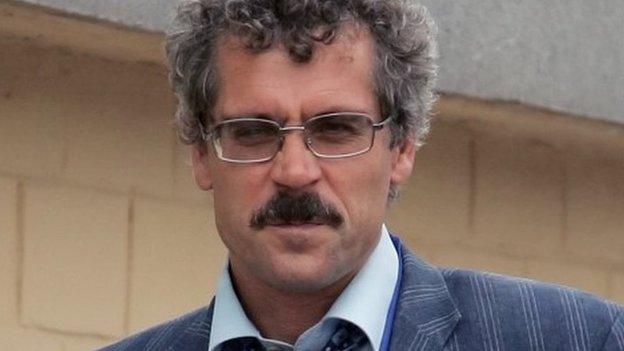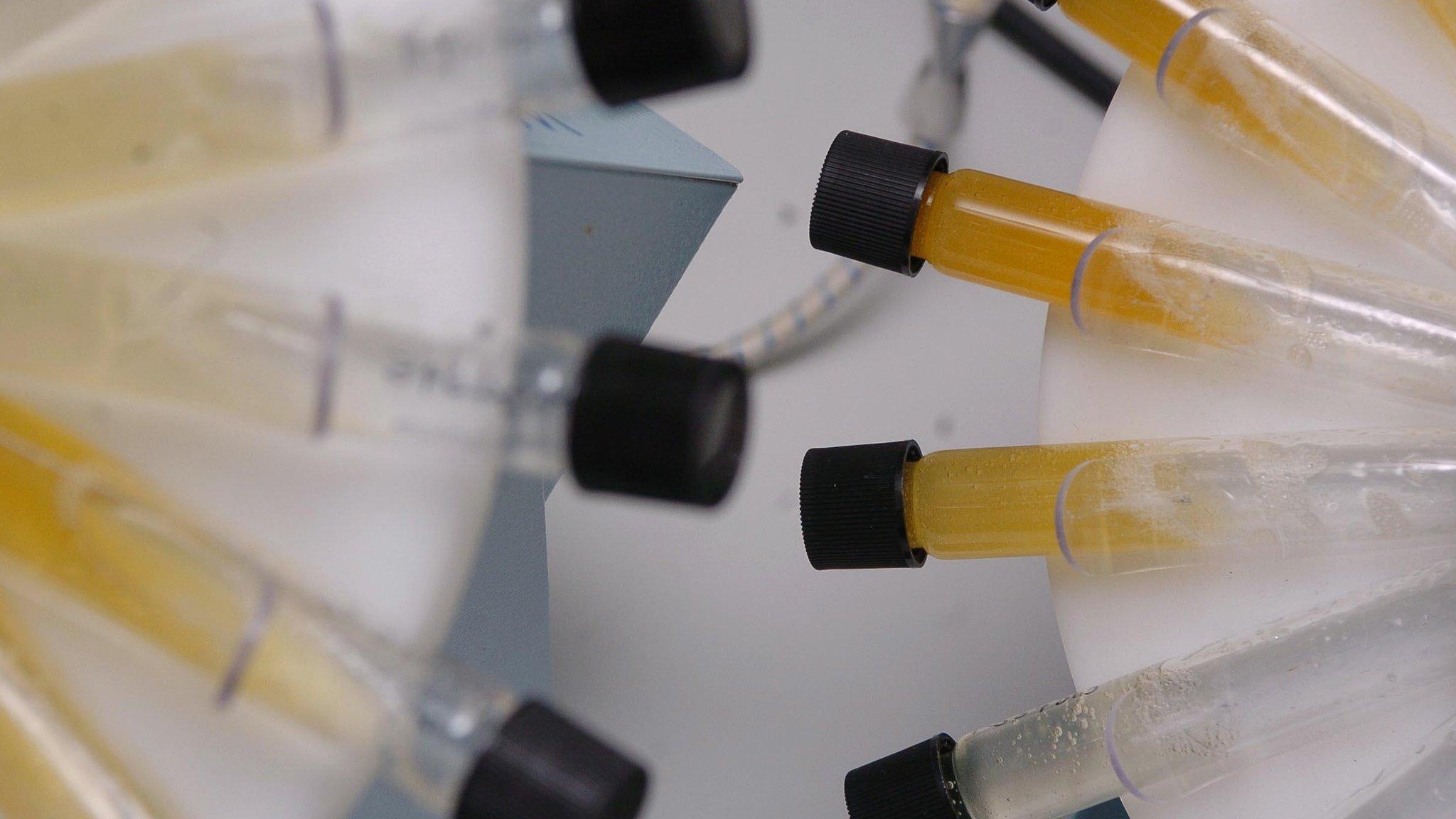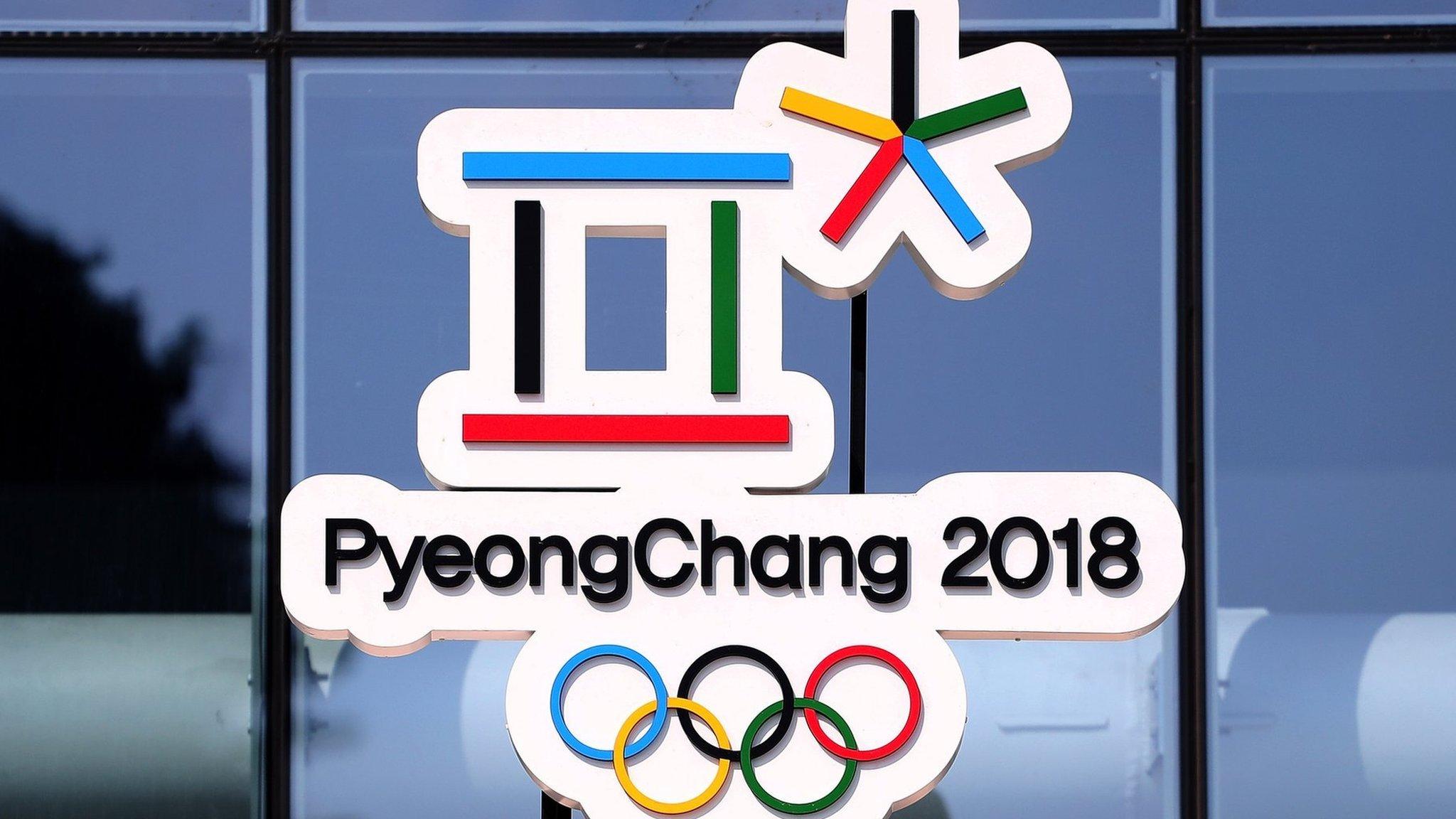Russia doping whistleblower accused by state of supplying drugs
- Published

Mr Rodchenkov fled to the United States after Moscow issued an arrest warrant
A Russian inquiry has concluded the whistleblower who reported an alleged state doping cover-up at the Sochi Olympics personally supplied the drugs.
The government investigations unit says athletes did not know Grigory Rodchenkov had given them substances.
Rodchenkov was the director of Moscow's anti-doping laboratory.
The accusation comes a week before Russia finds out if its Olympic ban for state-sponsored doping will be lifted before the 2018 Pyeongchang Games.
"It was established that Rodchenkov personally supplied the athletes and coaches with medicines whose proven features were not known to them but which later were established to constitute performance-enhancing drugs," the Investigative Committee of Russia (IC) said in a statement., external
Russian doping: Who is whistleblower Grigory Rodchenkov?
It adds that he destroyed the athletes' samples and then accused Russia of implementing a doping programme.
Russia has always maintained that Rodchenkov, and not the state, was involved. The country's president Vladimir Putin said the allegations stemmed from "one man with a scandalous reputation"., external
The World Anti-Doping Agency (Wada) has previously accused Rodchenkov of asking for and accepting bribes and destroying more than 1,400 blood and urine samples.
He fled to the United States in January 2016 after Moscow's court issued an arrest warrant. The IC investigation also stated that Rodchenkov continued to work on the Moscow's laboratory's database remotely.
"Having the access rights to the base and the results of the athletes' tests up to June 2016, they had a chance to uncontrollably change them with the goal of creating false evidence," IC's spokeswoman Svetlana Petrenko is quoted as saying in Russian newspaper Tass., external
In an interview with the New York Times in May 2016,, external Rodchenkov said doping athletes was part of his job and his laboratory would have stopped receiving funding if he had not done it.
The McLaren report, published in 2016 and commissioned by Wada, alleged state-sponsored doping in Russia. It detailed evidence of an "institutionalised and disciplined medal-winning conspiracy" that operated in Russia between 2011 and 2015. More than 1,000 Russian athletes - including Olympic medallists - were said to have benefited.
Russia's anti-doping body Rusada was declared "non-compliant" and the country's track and field team was banned from the 2016 Rio Olympics, and also the 2017 World Athletics Championships.
The International Olympic Committee will next week hear the results of two investigations into Russian doping before making its decision on whether the country should compete in Pyeongchang.
- Published26 November 2017

- Published16 November 2017
